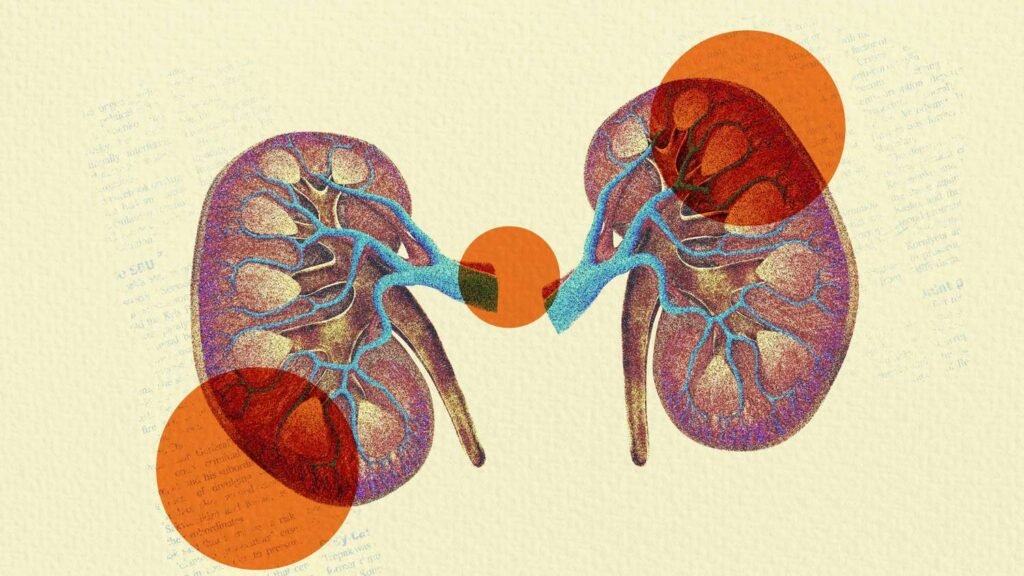Kidney disease is a serious condition that affects millions of people worldwide. As the disease progresses, it can lead to various complications and symptoms that impact your overall health and quality of life. Recognizing these symptoms early can be crucial in managing the disease and seeking appropriate treatment. Below, we’ll discuss some of the common symptoms you may notice as kidney disease progresses.
1. Nausea and Vomiting
One of the first signs of advanced kidney disease is nausea and vomiting. This occurs because the kidneys are no longer able to effectively filter waste products from the blood, leading to a buildup of toxins that can cause gastrointestinal discomfort. If you’re experiencing frequent nausea or vomiting, it’s important to consult with a healthcare professional to determine the underlying cause.
2. Muscle Cramps
Muscle cramps are another common symptom of kidney disease. These cramps can be painful and may occur due to an imbalance of electrolytes in the body, particularly calcium and phosphorus. As kidney function declines, the balance of these minerals can be disrupted, leading to cramping and discomfort.
3. Loss of Appetite
A decrease in appetite is often reported by individuals with progressing kidney disease. The buildup of waste products in the blood can cause a metallic taste in the mouth or bad breath, which may lead to a reduced desire to eat. Additionally, nausea and vomiting can further contribute to a lack of appetite, resulting in unintended weight loss.
4. Swelling via Feet and Ankles
Swelling in the feet and ankles is a hallmark symptom of kidney disease. When the kidneys are not functioning properly, they are unable to remove excess fluid from the body, leading to fluid retention and swelling. This swelling, also known as edema, can be uncomfortable and may worsen as the disease progresses.
5. Dry, Itchy Skin
Kidney disease can also affect your skin, causing it to become dry and itchy. This occurs due to a buildup of toxins in the bloodstream that the kidneys are unable to filter out. Additionally, as kidney function declines, the production of certain hormones and vitamins that help maintain healthy skin can be affected, leading to dryness and irritation.
6. Shortness of Breath
Shortness of breath is a concerning symptom that can occur in advanced kidney disease. Fluid buildup in the body can accumulate in the lungs, making it difficult to breathe. Additionally, anemia, a common complication of kidney disease, can reduce the amount of oxygen-carrying red blood cells in the body, further contributing to feelings of breathlessness.
7. Trouble Sleeping
Sleep disturbances are common among individuals with kidney disease. The discomfort from muscle cramps, the need to urinate frequently during the night, and difficulty breathing can all contribute to trouble sleeping. Additionally, restless legs syndrome, a condition often associated with kidney disease, can make it challenging to get a restful night’s sleep.
8. Changes in Urination
Finally, changes in urination patterns are often observed in kidney disease. You may find yourself urinating either too much or too little. Increased frequency of urination, especially at night, or decreased urine output can be indicative of declining kidney function. It’s important to monitor these changes and report them to your healthcare provider.
Conclusion
Kidney disease is a progressive condition that requires careful monitoring and management. Recognizing the symptoms of advanced kidney disease, such as nausea, muscle cramps, loss of appetite, swelling, dry skin, shortness of breath, trouble sleeping, and changes in urination, is crucial for seeking timely medical intervention. If you or a loved one is experiencing any of these symptoms, it’s essential to consult with a healthcare professional to explore treatment options and manage the disease effectively.
Early detection and proactive management can help slow the progression of kidney disease and improve quality of life.

